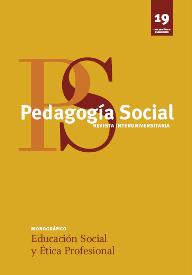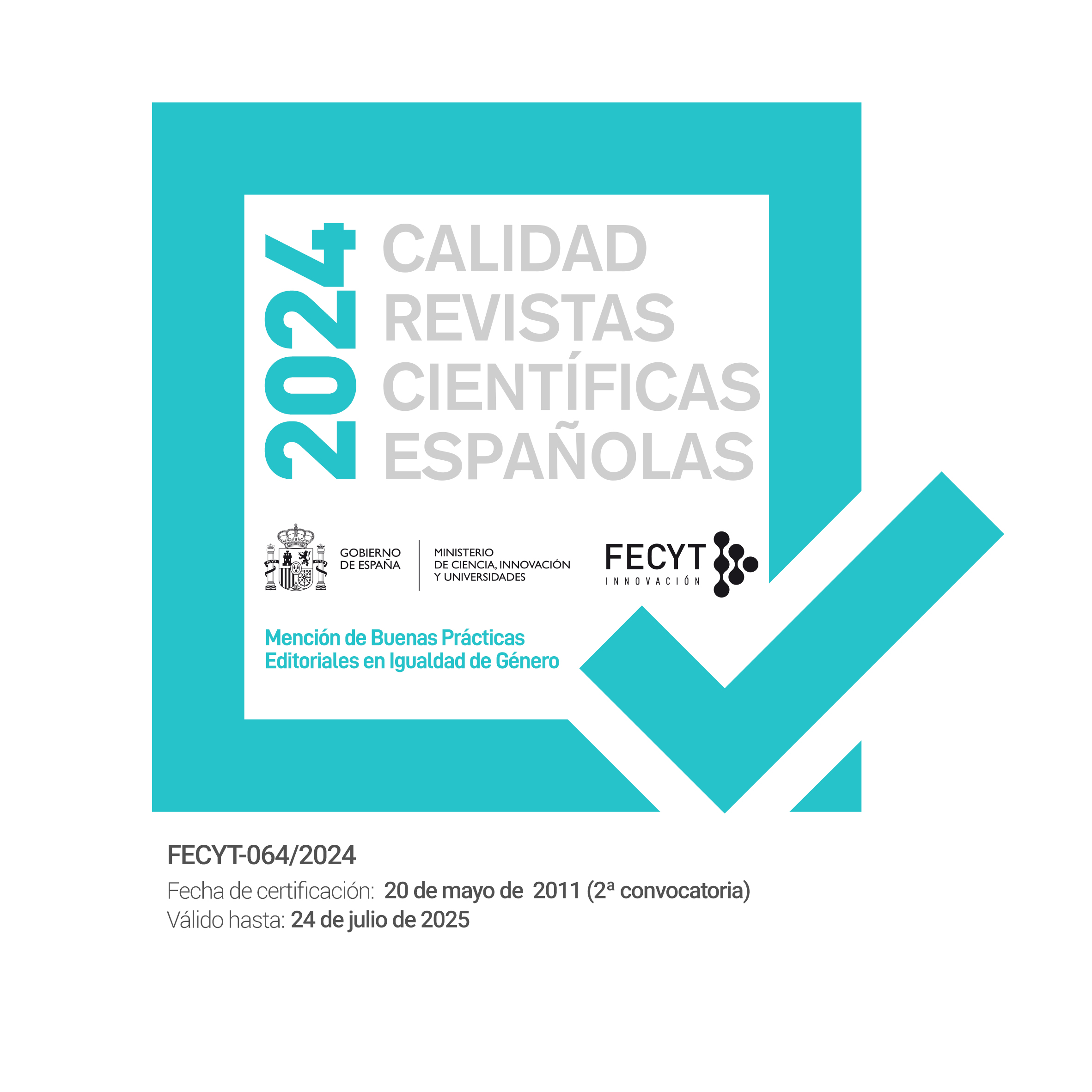Ética y Educación Social – interpretaciones contemporáneas.
DOI:
https://doi.org/10.7179/PSRI_2012.19.03Palavras-chave:
Educación Social, Pedagogía Social, Ética, Moral, Deontología, Hospitalidad, Social Education, Social Pedagogy, Ethics, Deontology, HospitalityResumo
Los profesionales del conocimiento sociopedagógico especializado, en relación sobre todo con individuos y grupos en situación de privación humana, sufrimiento y vulnerabilidad, los educadores sociales actúan como agentes privilegiados de la condición humana, jugando un papel crucial en la promoción de un futuro más justo y solidario.
Este documento pretende dar a conocer los principios de racionalidad, congruentes con la utopía social de los humanos en el contexto de la “sociedad de aprendizaje”, previendo los desafíos de la profesionalidad y/o autoridad de enseñanza de los educadores a la luz de una concepción amplia de la ética, por un valor de tres dimensiones – teleológicas, deontológicas y prudencial-. El deber de excelencia que impulsan los procesos de desarrollo continuo de las normas de conducta y normas es el carácter imperativo inalienable de quienes se identifican con su profesión y no una imposición externa. Bajo esta premisa, hemos puesto las demandas de los educadores de reflexión profesional en el marco de una “ética de la hospitalidad” basada en los valores, la responsabilidad y la bondad como una acción de calificación ética y estética de la acción socioeducativa.
------------------------------------------------------------------
Social educators, who are specialists in socio-pedagogical knowledge, are destined to become especially involved with individuals and human groups in situations of deprivation, suffering and vulnerability. Therefore, they act as privileged agents of the human condition, playing a crucial role in promoting more just and supportive times.
This paper mainly seeks to provide evidence of the principles of socio-educational rationality that are in keeping with the human utopia within an “educational society’. Thus, it focuses on the challenges of ethical professionalism and/or the pedagogical authority of social educators in the light of a broader concept of ethics, considered in its triple teleological, deontological and sensible dimension. The commitment to excellence, which encourages the ongoing development of ethical standards and rules, are an inalienable imperative of those who identify themselves with their job and do not regard it as something external to them. Therefore, the demands of the professional reflection by social educators fall within the framework of an “ethics of hospitality” based on values such as welcome, responsibility and goodness for the ethical and aesthetic qualification of socio-educational action.
Downloads
Downloads
Publicado
Como Citar
Edição
Secção
Licença
Direitos de Autor (c) 2014 Pedagogía social. Revista interuniversitaria

Este trabalho encontra-se publicado com a Licença Internacional Creative Commons Atribuição-NãoComercial 3.0.
Derechos de reproducción y archivo
La versión publicada de los artículos podrá ser autoarchivada por sus autores en repositorios institucionales y temáticos de acceso abierto. No obstante la reutilización total o parcial de los mismos en nuevos trabajos o publicaciones deberá ser autorizada por Pedagogía Social. Revista Interuniversitaria.
Los trabajos publicados deberán ser citados incluyendo el título de la Revista, Pedagogía Social. Revista Interuniversitaria, nº, páginas y año de publicación.
Responsabilidades éticas
Pedagogía Social. Revista Interuniversitaria no acepta material publicado anteriormente en otros documentos. Los/as autores/as son responsables de obtener los permisos oportunos para reproducir parcialmente material de otras publicaciones y citar correctamente su procedencia. Estos permisos deben solicitarse tanto al autor/a como a la editorial que ha publicado dicho material.
Es obligación de Pedagogía Social. Revista Interuniversitaria detectar y denunciar prácticas fraudulentas.
En la lista de autores/as firmantes deben figurar únicamente aquellas personas que han contribuido intelectualmente al desarrollo del trabajo.
La revista espera que los/as autores/as declaren cualquier asociación comercial que pueda suponer un conflicto de intereses en conexión con el artículo remitido.
Los autores deben mencionar en el manuscrito, preferentemente en el apartado del método, que los procedimientos utilizados en los muestreos y controles han sido realizados tras la obtención de consentimiento informado.
La revista no utilizará ninguno de los trabajos recibidos con otro fin que no sea el de los objetivos descritos en estas normas.
Aviso de derechos de autor/a
© Pedagogía Social. Revista Interuniversitaria. Los originales publicados en las ediciones impresa y electrónica de esta Revista son propiedad del Pedagogía Social. Revista Interuniversitaria, siendo necesario citar la procedencia en cualquier reproducción parcial o total.
Salvo indicación contraria, todos los contenidos de la edición electrónica se distribuyen bajo una licencia de uso y distribución “Creative Commons Reconocimiento-No Comercial 3.0 España” (CC-by-nc). Puede consultar desde aquí la versión informativa y el texto legal de la licencia. Esta circunstancia ha de hacerse constar expresamente de esta forma cuando sea necesario.






